Together in the Magnificent Vessel We Carry Ashore
——Buddhist’s Footprints in Hong Kong Education
Episode One
Introduction
In the early 20th century, the Buddhist community in Hong Kong were active mostly in the countryside with monks and nuns gathered and lived under a monastic rule of life. The “Rural Buddhism” was the traditional mode of Buddhist existence. With the urbanization of Hong Kong, the “Urban Buddhism” emerged. Buddhist schools and other organizations were also set up in the city to provide charitable and social welfare services to the public, aiming at spreading Buddhist teachings and strengthening the connection between Buddhism and society.
Lady Clara Ho Tung is the pioneer of “Urban Buddhism” in Hong Kong. She established not only the first free Buddhist school for girls, the “Po Kok Free School”, but also the first temple in Hong Kong Island “Tung Lin Kok Yuen”.
Tung Lin Kok Yuen’s architectural structure resembles a “magnificent vessel” symbolizing one of Mahayana Buddhism’s concepts of carrying all beings to the “other shore” of “enlightenment”. In the colonial period, Lady Clara led a group of Buddhists and community leaders to overcome all obstacles to promote education with Buddhist teachings and values in Hong Kong. The following seven well-respected dignitaries including Lady Clara Ho Tung, Madam Lam Ling Chun, Sir Robert Ho Tung, General Robert Ho Shai Lai, Sir Man-kam Lo, Dr. Irene Cheng, and Venerable Ching Zhen have unstinting devotion from the pre-war to the post-war period to promote the development of Buddhism in Hong Kong.
Lady Clara Ho Tung
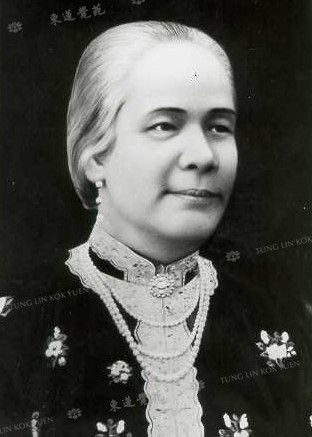
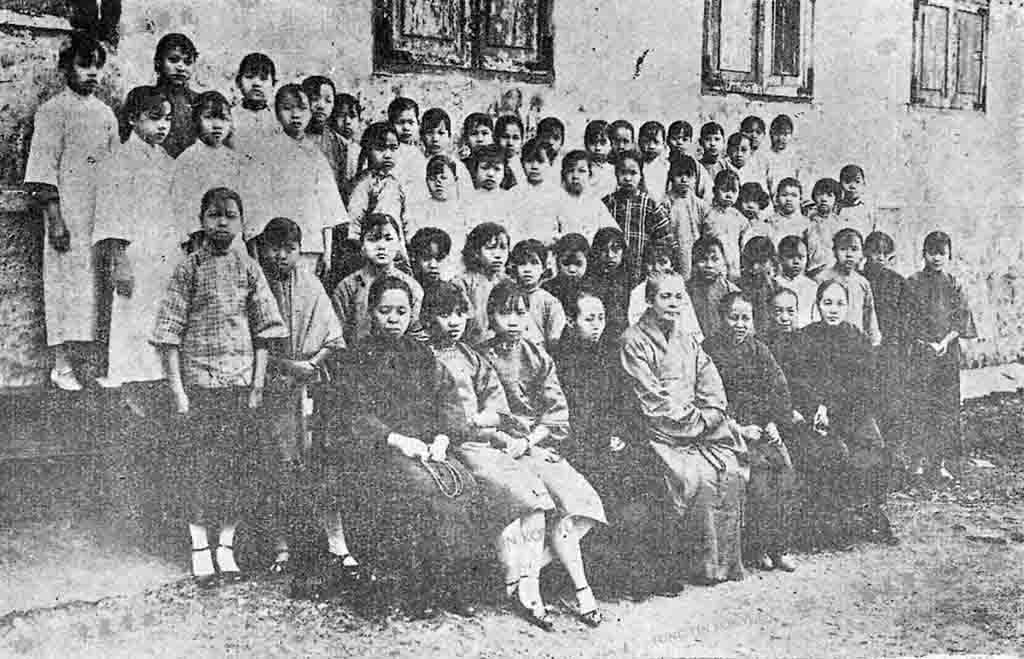
Lady Clara established Po Kok Free School for girls in Macus in the early 1930s
“Nowadays……the haze of war is all over the world……Buddhism is the only way to salvation. Yet religion is in decline without reaching the public. To strengthen the reach of Buddhist teachings, education and nurturing of talent are critical. Hence my great vow to establish schools.”
Lady Clara Ching Yung Cheung, aka Lin Kok Cheung, wife of Sir Robert Ho Tung, is the forerunner of early female education development. She is the founder of the first Buddhist school for girls in Hong Kong; and the Buddhist temple Tung Lin Kok Yuen. She has been devoted to the propagation of Buddhist teaching and education services for girls.
Lady Clara considered the need of education for women “is not less than men”, according to the Hong Kong Census Report in the 1921, only 12.2 % of women were literate, compare with 73.4% for men. In the early 1930s, she decided to set up the Po Kok Free School in Causeway Bay, Hong Kong, and another school by the same name in Macau to provide education for underprivileged girls and to promote Buddhism.
Since the Po Kok Free School was officially registered under the Education Department in 1930s, Lady Clara was personally engaged in setting up the regulations in school management, discipline and curriculum, aiming to meet the requirements of the government-aided schools. Enrollment to the Po Kok Free School rose quickly, from approximately 20 students in the early 1930s to nearly 200 students in 1938. To further enhance the school environment, Lady Clara submitted several land applications to the government for school expansion.
The Po Kok Free School together with Po Kok Buddhist Institute (founded in 1932) was moved into Tung Lin Kok Yuen in 1934 which was officially established in 1935. Since then, Tung Lin Kok Yuen has played a significant role in the community for its contribution in female education, and the development and teaching of Buddhism.
The last will of Lady Clara in 1937 indicated that most of her estate should be donated to Tung Lin Kok Yuen. She also assigned Madam Lam Ling Chun as the Superintendent of the Yuen and the Principal of the Po Kok School. The Board of Directors were also formed to manage the expansion and operation of the Po Kok School and Tung Lin Kok Yuen.
Madam Lam Ling Chun
Madam Lam Ling Chun was the right hand person of Lady Clara, assisted in not only the establishment of Po Kok Buddhist Seminary for girls at Castle Peak in the New Territories in 1932, but also the operations of the Po Kok Free School and Tung Lin Kok Yuen. When Lady Clara passed away, Madam Lam became the Superintendent of the Yuen and the Principal of the Po Kok School.
From 1938 to 1963, Madam Lam devoted herself not only to Tung Lin Kok Yuen and Po Kok Free School, but also the development of Hong Kong Buddhism. Under the leadership of Madam Lam Ling Chun and other board members, Po Kok Free School developed rapidly after the WWII with the expansion of school premise and the extension of school curriculum to secondary level. At the same time, Madam Lam helped establish the Hong Kong Buddhist Association and many Buddhist schools, such as Buddhist Chung Wah Free School, Ching Shan Free School, Chi Lin Free School, Chi Hong Free School and Buddhist Wong Fung Ling College.
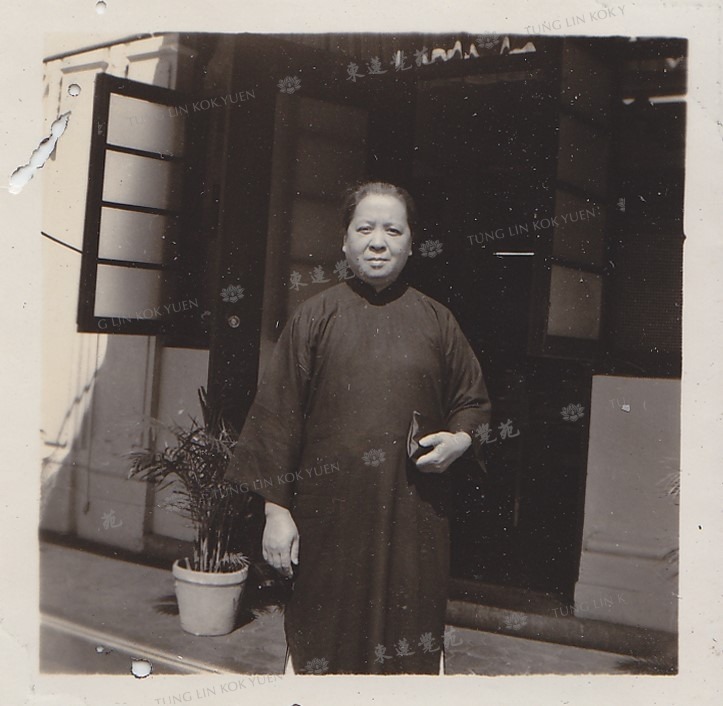
Sir Robert Ho Tung
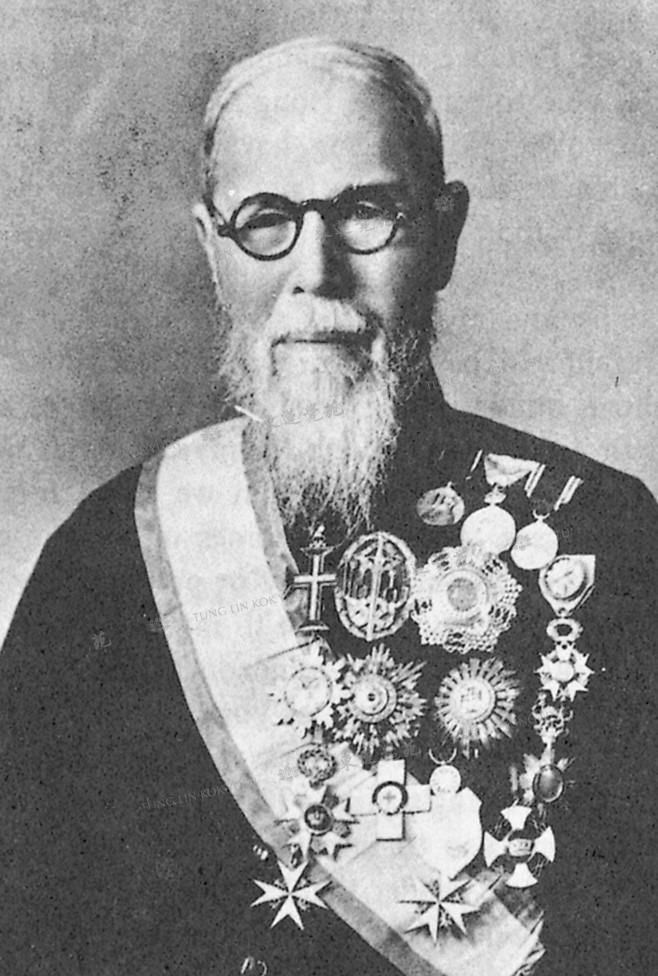
The gift from Sir Robert: HK$100,000 in celebration of the golden wedding anniversary, encouraged Lady Clara to build Tung Lin Kok Yuen, a landmark Buddhist temple in 1935.
Sir Robert is a great benefactor to Hong Kong community especially in the area of education. His generous and admirable donations comprised the building of the Former Kowloon British School, The University of Hong Kong, Aberdeen Children’s Technical Institute, the Hotung scholarship in Queen’s College and so on.
Sir Robert is undoubtedly a pioneer in providing equal education opportunities for girls. In addition to supporting Lady Clara to found the Po Kok Free School in Hong Kong and Macau in 1930, he also donated to establish the Ho Tung Technical School for Girls, which was the first vocational school for girls in Hong Kong.
His donation to The University of Hong Kong was most noteworthy ranging from the establishment fund in 1911 to later expansions. In 1950, Sir Robert contributed one million dollars to build the Lady Ho Tung Hall, the first and the only female residential hall at The University of Hong Kong, in memory of his late wife Lady Margaret. Governor Alexander Grantham officiated the opening ceremony.
Sir Robert’s dedication to charity and serving the community had influenced his family. He was one of the first Hong Kong-born people who was knighted twice.
General Robert Ho Shai Lai
General Robert Shai Lai is the son of Robert Ho Tung and Clara Cheung Lin Kok, he was also named in Clara’s will as a Board Director to look after Tung Lin Kok Yuen and Po Kok School. After he retired from public services and returned to Hong Kong in 1962, he managed not only the Kung Sheung Daily News and other family businesses, but also various philanthropic activities. General Robert Shai Lai was actively involved in the issues of Tung Lin Kok Yuen, Po Kok School, Ho Tung School, etc. In various occasions, he addressed the students and encouraged them to contribute to society with integrity. He also provided financial support to the development of Po Kok School, such as the refurbishment and equipment of the “Man Kam Memorial Building”.
His benevolence was not limited to Hong Kong’s education. In 1995, he also donated to Northeastern University in Shenyang, founded by Zhang Xueliang, to establish a new teaching building.
In 1962, General Robert Shai Lai persuaded his son Robert Hung Ngai to return to Hong Kong from the US to help with the family businesses and investments, including the management of Kung Sheung News and Tung Lin Kok Yuen. Even after his retirement, Robert Hung Ngai continues to focus on philanthropy including promoting the philosophy of Buddhism and expanding Tung Lin Kok Yuen and Buddhist teachings internationally.
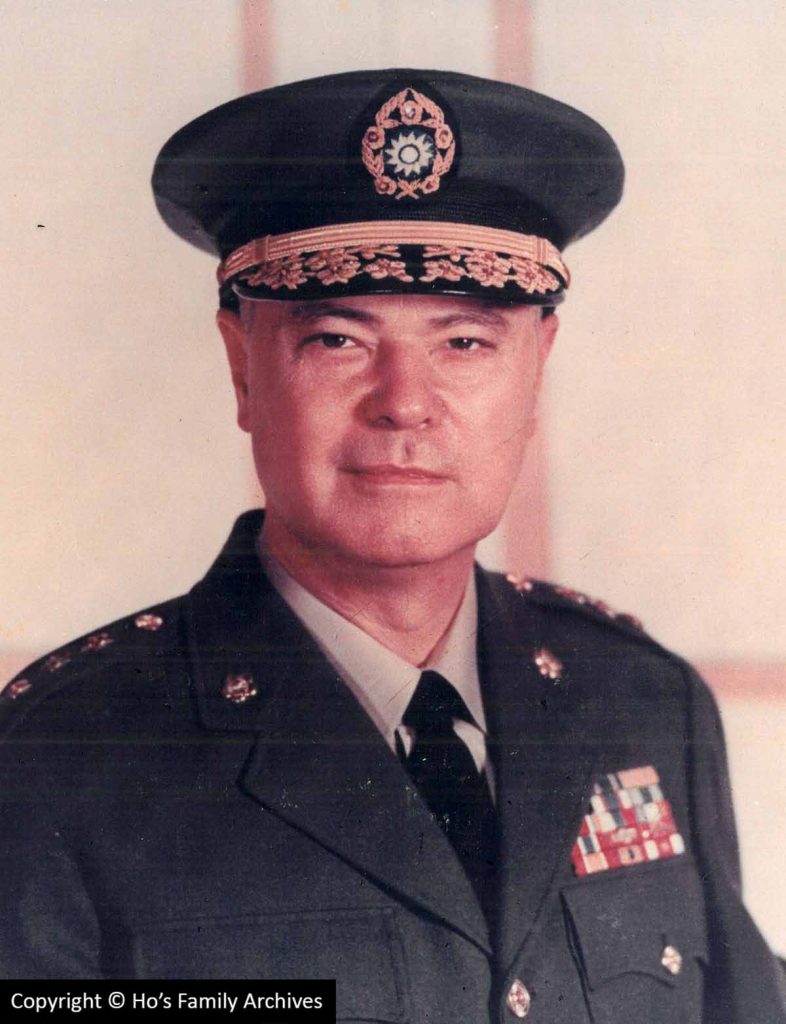
Sir Man-kam Lo
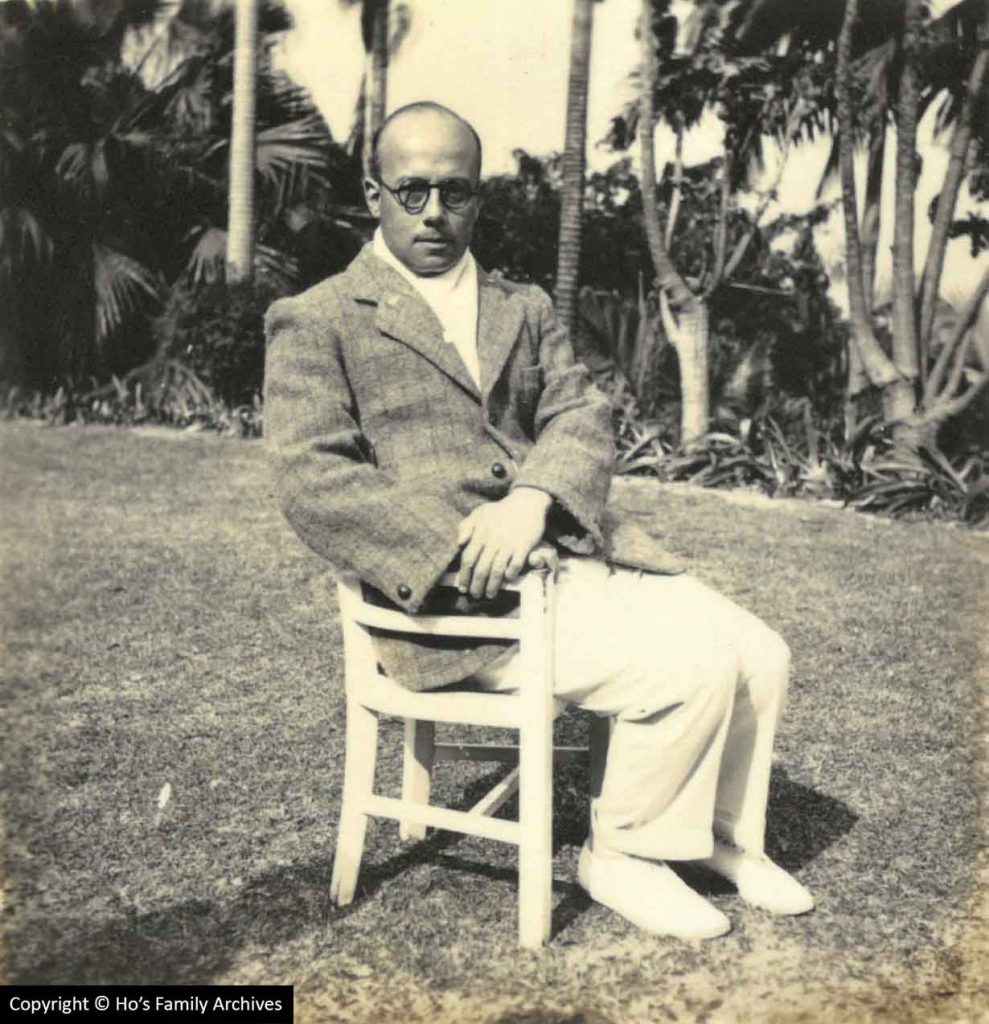
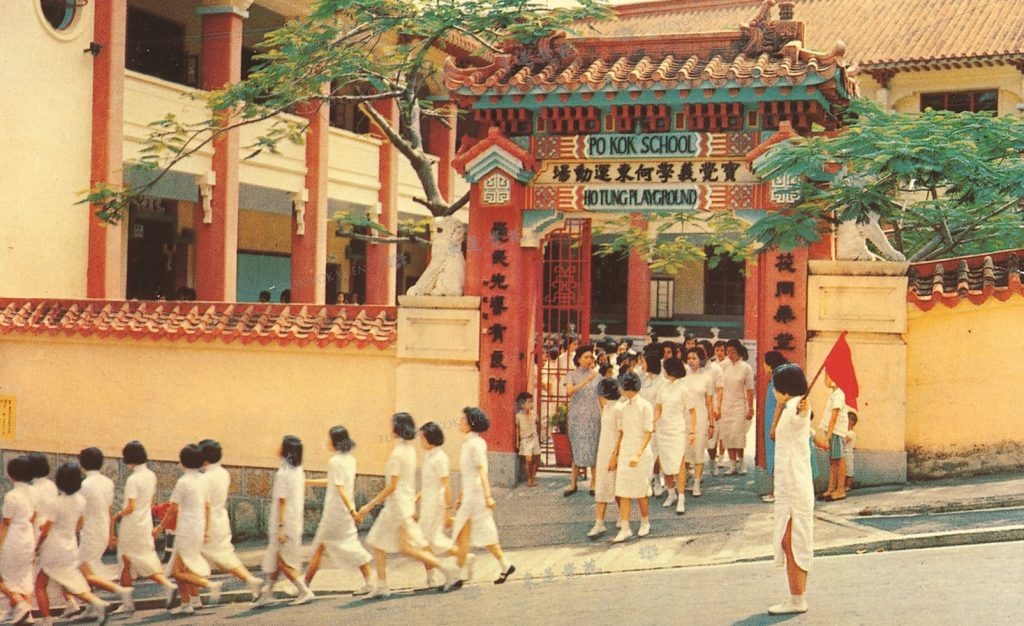
“Sir Man-kam Lo is a philanthropic person with an indomitable spirit”
Sir Man-kam Lo, the son-in-law of Lady Clara, was one of the board members appointed by Lady Clara in her will. He was then also one of the three Chinese representatives in the Legislative Council. To complete Lady Clara unfulfilled wish, he applied to the government for land at Tsui Man Street, Happy Valley to expand the Po Kok Free School and finally received approval in 1939. However, the completion was delayed to 1951 due to the WWII and the unexpected action by the government to cancel the permit and sell the land by auction. With Sir Man-kam Lo’s unrelenting effort, a renewal permit was issued by the government.
Po Kok Free School has transformed from a primary school to Po Kok Girl’s Junior Vocational High School in 1951, and extended the curriculum to senior secondary levels in 1956. Sir Man-kam Lo reckoned that Buddhist Studies should be one of the elective subjects in the Hong Kong Certificate of Education Examination, and this idea became a reality with the support of Madam Susan Kong and Madam Lam Ling Chun.
In 1958, Tung Lin Kok Yuen established the first Buddhist Primary School in Yuen Long. The school premise was donated by Madam Tang Kwai Yuk Janet to express her gratitude for Sir Man-kam Lo’s assistance in retrieving the property’s ownership back from the government.
In 1959, Sir Man-kam Lo proposed to the board the construction of a new extention in front of Tung Lin Kok Yuen. After his passing, the building was completed in 1961 and named as “Man Kam Memorial Building” in recognition of his contribution to the Po Kok Free School.
Dr. Irene Cheng Hotung
Dr. Irene Cheng, daughter of Sir Robert and Lady Clara, is a wise and passionate educator who had made profound contribution to secular and Buddhist education in Hong Kong. Dr. Irene Cheng was the first Chinese female graduate from the University of Hong Kong in 1925. She studied abroad for a teaching diploma and doctorate in education.
Dr. Irene Cheng joined the Department of Education in 1948 as a school inspector and senior education officer. She was responsible for the women education affairs there since 1952. Thanks to Sir Man-kam Lo and her advocacy, Buddhism Studies was officially announced as an elective subject in the three-year senior secondary curriculum during the colonial period, an important milestone for Hong Kong Buddhism in history.
Dr. Irene Cheng devoted her whole life to education, especially to the education development for women. She fully supported Sir Robert to build the Ho Tung Technical School for Girls and Lady Ho Tung Hall. Besides, she also contributed to the establishment of The Mental Health Association of Hong Kong, to advance the care, treatment and recovery of people with mental health disorder. Her passion for education continued after retiring from the government in 1961. She founded the Confucian Tai Shing School and served as the Principal from 1963 to 1967.
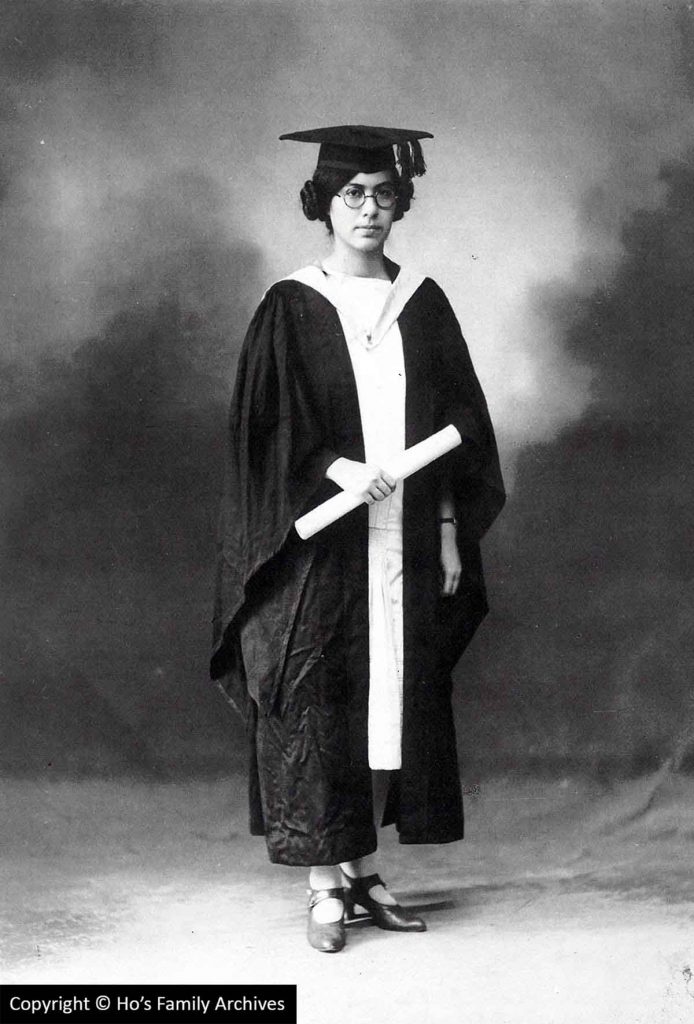
Venerable Ching Zhen
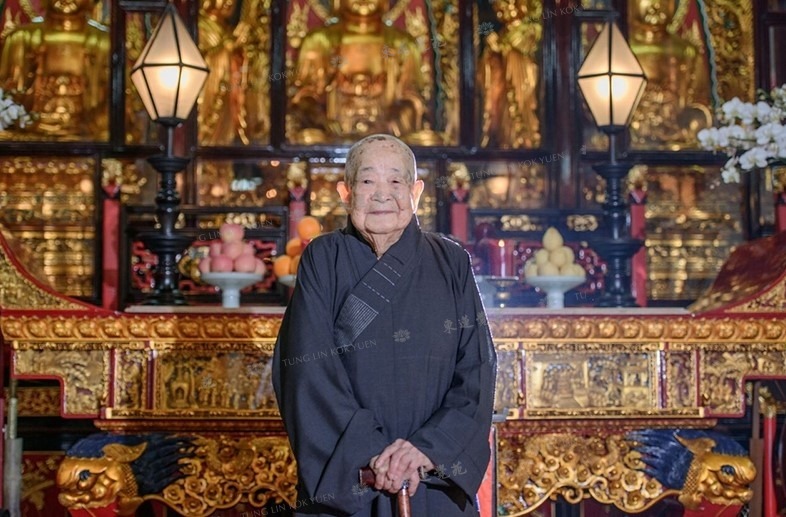

Venerable Ching Zhen committed herself in Hong Kong Buddhism since her graduation from the Po Kok Buddhist Society. She became one of the members in the early establishment of Hong Kong Buddhist Association to rebuild Hong Kong Buddhism after WWII. She also deeply devoted herself to education and enthusiastic about the goal of education with Buddhist teachings.
Venerable Ching Zhen followed the teaching from Venerable Ai Ting and was one of the first cohort of students graduated from the Po Kok Buddhist Society. After WWII, Madam Lam Ling Chun had invited Venerable Ching Zhen to work for the Hong Kong Buddhist Association. She was hired as a teacher by the Buddhist Chung Wah Free School and officially registered in 1948. During her approximately 40 years’ career teaching Buddhism and Chinese, she had served several schools such as the Buddhist Chung Wah Free School, Po Kok Primary School, Buddhist Wong Fung Ling College and Buddhist Wong Cheuk Um Primary School.


